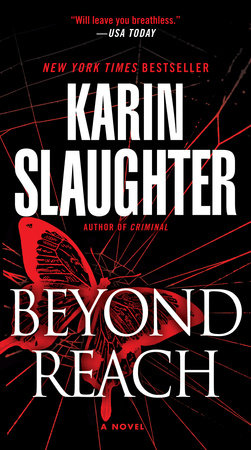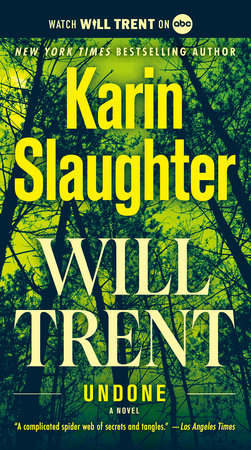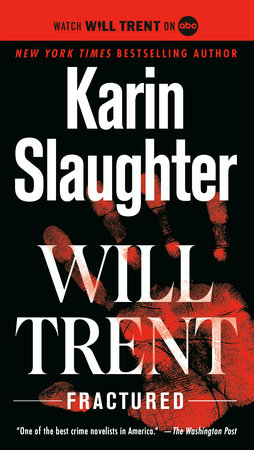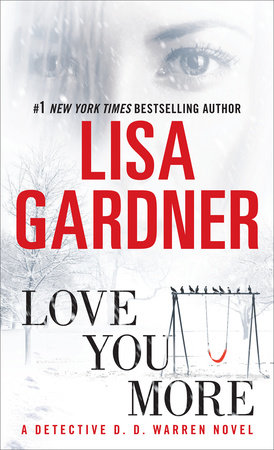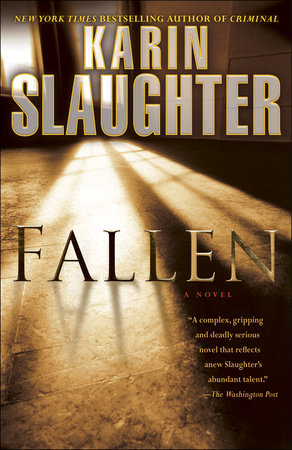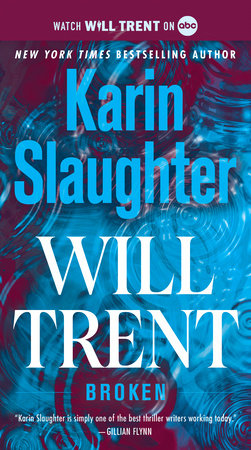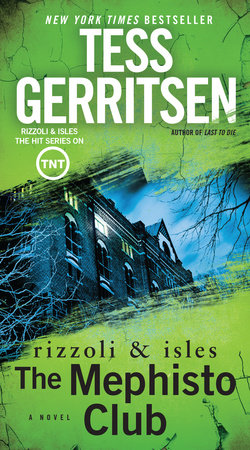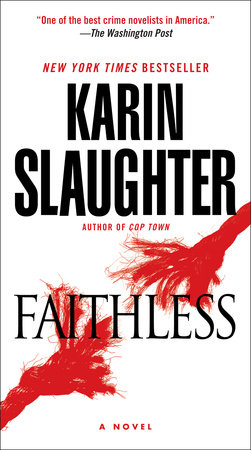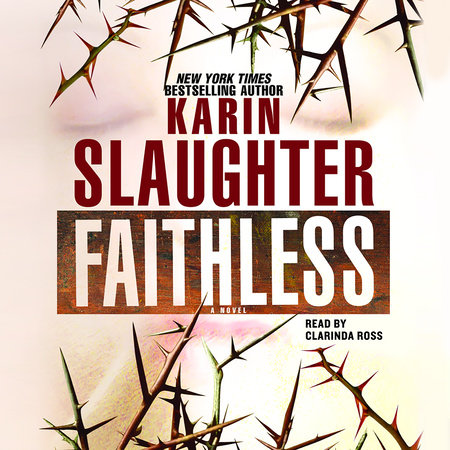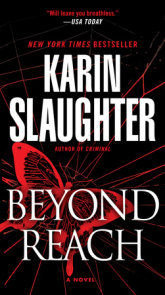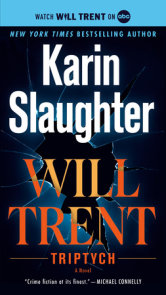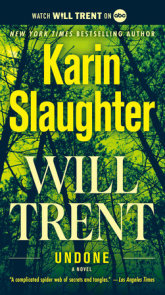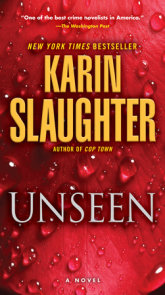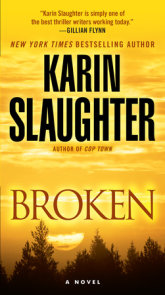Author Q&A
1. Faithless is noteworthy for many reasons, not the least of which is ongoing rehabilitation of the relationship between Sara Linton and JeffreyTolliver. When you were first developing your series, had you planned on them eventually taking some tentative steps toward reconciliation?
I always knew they would reconcile, so it’s a bit shocking when folks ask if it will ever happen. To me, the interesting part is seeing how they’re going to work now as a couple. In the opening of the next Grant County book, they’re living together. This is when the really hard stuff starts happening.
2. Faithless, the fifth and latest of your Grant County series, deals with a number of controversial topics, including fundamentalist religion, abortion, and domestic abuse. We were extremely impressed with the evenhandedness with which you approached these topics and the manner in which your primary characters approached these issues. What was the impetus behind constructing the plot of Faithless around these topics?
Crime fiction has always been at the forefront of social issues, whether it’s To Kill a Mockingbird or The Lovely Bones. The challenge for me was to not paint these issues in black and white. It would be very easy to say, “Religion is good!” or, “Religion is bad!” but that’s never how it is in real life. You’ve got nuts and extremists everywhere, and then you’ve got the average folks in between. Those are the people I’m interested in—the average folks and what compels them. I want to know about the gray.
3. One of the more subtle but very interesting elements of Faithless are the budgetary problems which Jeffery Tolliver deals with while attempting to enforce the law in Grant County. While the CSI labs and their county counterparts on television seem to have a blank check to purchase equipment, Tolliver’s problems appear to be more consistent with the real world, wherein he has to rely more upon dogged, solid police work than technological wonders. What made you choose to highlight this in Faithless?
Money has always been an issue in law enforcement because as a society, we seem much more invested in punishment than in prevention. That being said, I find it more interesting as a reader when an actual person solves a crime as opposed to a computer. I like to know what the characters are thinking so when they puzzle it out, it makes sense.
4. Lena is another Grant County character we enjoy reading about. One gets the sense that personally and professionally she needs a lot of work, yet she has the potential for improvement. Do you have any plans or intent to feature her more prominently in a future work?
Lena always gets more “page time” than I think she will. She’s a very volatile character, very polarizing at times, and she always keeps me guessing. In Skin Privilege, the next Grant County book, she goes back to Reese with her uncle Hank and we get to see her in a very different way. She has evolved so much since Blindsighted, and I like the fact that she’s not perfect. Sometimes you root for her and sometimes you want to slap her upside the head. That’s fun for me.
5. We love the subplots—and the continuation of plots from previous books—involving the characters in Faithless, such as Jeffrey’s health scare and Lena’s personal life. When you begin a new novel do you already have an idea of what you will continue from previous books, or do these stories unfold as you write?
Generally, I plan the character relationships out three books at a time. It’s important for me to know where they’re going, especially Lena. There have been some clues in the earlier books that will reward people who’ve been reading from the beginning. I’m very careful with each book to make sure it stands alone as well, because I want folks to be able to pick up any of the books and get a complete story without having to know what came before. I actually think Faithless is a good one to start with.
6. You have said that you believe secondary characters "add to the fabric of the story." We agree! To date, which of your secondary characters is your personal favorite, and why?
I’ve got a soft spot for Bill Brock, who runs the funeral home. He’s very goofy and he lives with his mama and he has a crush on Sara, yet he seems to still have a very happy outlook on life. Also, old man Burgess at the cleaners is named after a friend of mine and I have great fun giving him new age-related ailments with each story.
7. You have mentioned in interviews and on your website the importance of being realistic without moving into sensationalism when there is violence in your novels. How difficult is it to achieve this balance?
The balance is getting easier as I write more books. I really do think this ability is like a muscle that you can train and make stronger. I have the luxury of Sara guiding the moral compass, because she’s an incredibly compassionate and honest person. I want to honor that, and I want to be responsible to myself and what I set out to do in the series, which is to use the violence as a springboard to talk about issues that are important to women: child abuse, domestic violence, poverty, etc.
8. You have had a great deal of international success with your Grant County series (congratulations on being #1 in London and Ireland!), even though it is set in a rural southern area as opposed to a more panoramic, cosmopolitan backdrop. What elements of your Grant County novels do you feel have the most appeal to the world audience?
Something I’ve found as I’ve toured throughout Europe is that small-town life is universal. You’ll find the same cast of characters (the busybody, the town slut, the bad seeds) everywhere, whether it’s in Holland, Germany, France or good old Grant County, Georgia. I’d also like to add that the world has been fascinated with the American south for a long time. There is a reason that Uncle Tom’s Cabin and Gone With the Wind are two of the most translated books in the world.
9. You have stated that you need to know the title of your work-in-progress before you can begin actually writing the book. How long does it take for you to think of a title? Have you ever had a title change after the book was acquired, either by your choice or the publisher’s choice?
I’ve never had a title change, which is good, because the title does define the story for me and I feel very close to it from a creative standpoint. I tend to think of one-word titles that help convey the purpose of the book. Kisscut is a good example, because it really plays out in the story. Usually, I’ll think of scene to open the book, then the title will come, then a week later, I’m at the computer working on it. I consider the title a fulcrum that helps pry the story from my brain.
10. You began writing stories as a child. Do you recall what types of stories you wrote and read at that age? Did you see writing as a hobby, or did you know this was the work you wanted to do at that age? What advice do you have for our readers who may have children/younger family members who are aspiring writers?
I never thought I’d be able to make a living from writing, so this has truly been a gift to me. The best advice I can give anyone who wants to write is that they need to read as much and as often as they can—and not just the genre in which they wish to write. When I was a kid, I read everything, from Encyclopedia Brown to V.C. Andrews to John Jakes to…well, anything they’d let me check out of the library.
11. Your next planned novel, Triptych, is a stand-alone work, but we understand that you then plan to return to Grant County. Do you have several future Grant County novels already outlined, or do you wait until you are actually ready to begin a new work before you plot it out?
I mentioned Skin Privilege earlier—that’s what I’ll start in January of next year. After that come Genesis, then a novel I’ve tentatively titled Broken. There might be one in between those—it just depends on which story interests me the most. The fun thing about Triptych is you’ll see someone from Grant County in that story, and you’ll also see someone from Triptych join Sara and the gang.
12. Are you willing to share a little bit about Triptych (a June 2006 release)?
I can’t say much because it’s a very twisty-turny sort of story and I would hate to give away too much. I can talk about the setting, which is very urban and gritty-Atlanta, my home town. The characters are a bit rougher in some ways, but I think that makes them interesting. I wanted to make sure I didn’t rip off anyone from Grant County (I hate when you read a stand-alone and it’s really the series characters with new names and better haircuts) so you’ll find that the people you meet in Triptych are very different from anyone you’ve seen me write about before.



